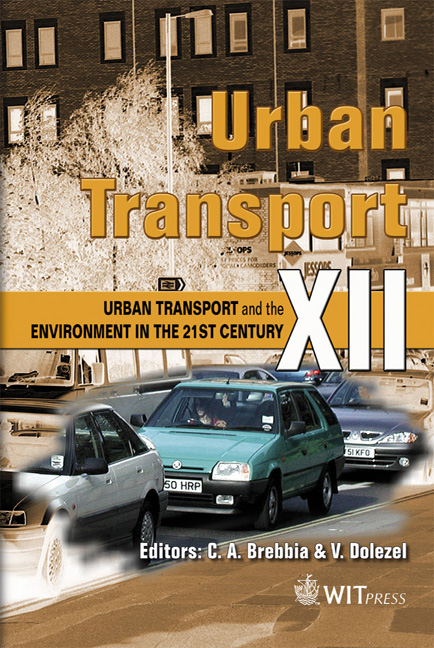The Impact Of Energy Prices On The Sustainability Of Urban Transport
Price
Free (open access)
Transaction
Volume
89
Pages
10
Published
2006
Size
387 kb
Paper DOI
10.2495/UT060631
Copyright
WIT Press
Author(s)
P. Amrusch & F. Wirl
Abstract
This paper is motivated by the recent strong energy price increases and investigates the impact of these recent price increases on the demand and the composition of urban transport (public and private). In the first section, the relative price change of private transportation due to fuel prices is estimated for Vienna, whereby the substitutability between public and private transport is investigated. In the second section, changes in consumer behaviour related to the fuel efficiency of cars are discussed. In particular, the paper tries to quantify the impact of these price changes on the relative prices in the used-car market. Keywords: fuel price increase, urban transport, marginal willingness to pay for car efficiency, hedonic mode, used-car market, car model fashion, SUVs. 1 Introduction The 2005 mid-year oil price trend reveals the highest nominal increase – of over $ 40 per barrel; only the energy price hikes 1973/74 and 1979-81 show a similar magnitude (higher in %, lower in $s). Fig. 1 shows the oil price evolution in nominal and real terms. Although oil prices have come down in the last month (January), forward prices continue to increase (OPEC [1]). The product prices (in Rotterdam) reached during 2005 a situation that the prices of diesel surpassed that of gasoline due to the switch to much more efficient diesel engines. This is also shown at the pump (Fig. 2) although not completely due to a still tax advantage for diesel in Austria. The major goal of this investigation is to trace the behavioural consequences of this price increase in the transport sector with special emphasis on Austria. Since car fuel efficiency affects the cost of operating a car, energy-saving
Keywords
fuel price increase, urban transport, marginal willingness to pay forcar efficiency, hedonic mode, used-car market, car model fashion, SUVs.





